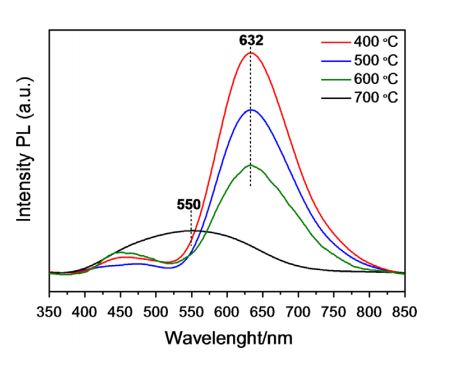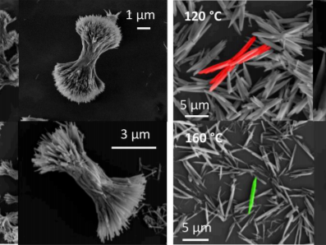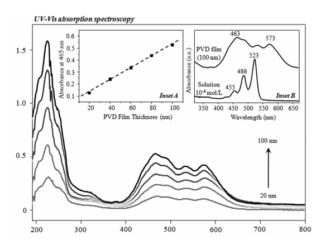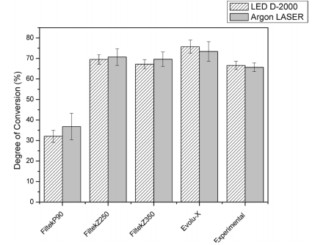
Visible-light photocatalysis with bismuth titanate (Bi12TiO20) particles synthesized by the oxidant peroxide method (OPM)
Abstract: In this paper, we have successfully synthesized high quality single crystalline bismuth titanate with sillenite (Bi12TiO20) phase by the oxidant peroxide method (OPM). The structures of precipitate and calcined materials were characterized by X-ray diffraction (XRD), UV-vis diffuse reflectance spectra (DRS), X-ray photoluminescence (PL) spectroscopy, thermogravimetry analysis (TG), differential scanning calorimetry (DSC) Fourier transform infrared spectroscopy (1-FIR), transmission electron microscope (TEM), scanning electron microscopy (SEM) and nitrogen adsorption/desorption. The XRD analysis showed that the calcination temperature of 500 degrees C and time of 1 h was found to be sufficient to produce Bi12TiO20 powder and the DRS confirmed that the photoresponse of the prepared bismuth titanate extended to the visible light region at about 465 nm representing a possible photoactivity under solar irradiation. The photocatalytic activities were verified through the photocatalytic degradation of rhodamine b (RhB) as a model compound under visible light irradiation. It was found that the material calcined at 400 degrees C exhibits good photocatalytic activity compared to commercial TiO2, the kinetic rate constant over 400 degrees C is 0.006 min(-1), which is 9.4 times higher than commercial TiO2. The higher photocatalytic activity of this material is mainly attributed to an increase in the extension of its optical absorption spectrum, as compared to TiO2. (C) 2015 Elsevier Ltd and Techna Group S.r.l. All rights reserved.
Author(s): Nogueira, AE; Longo, E; Leite, ER; Camargo, ER
CERAMICS INTERNATIONAL
Volume: 41 Pages: 12073-12080 Published: NOV 2015
DOI: 10.1016/j.ceramint.2015.06.024




